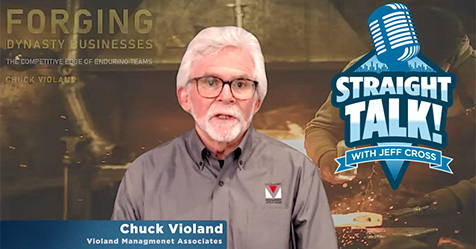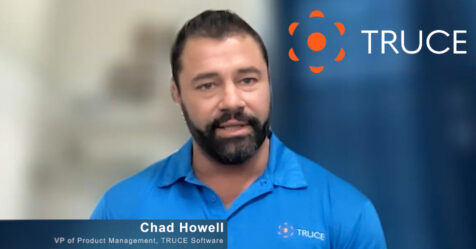As an industry consultant, I am frequently asked, “What is the most important benefit of implementing a cleaning quality assurance program?” Many people are surprised when I answer it’s not the improved quality, it’s not the improved metrics, but rather, it’s the improved relationships across all levels of the cleaning organization and the client’s stakeholder groups.
When you think about it, the answer shouldn’t be surprising. Lower costs, better training, and improved cleanliness can only be achieved when everyone is pulling in the same direction.
The most successful cleaning professionals understand that successful quality assurance —or quality control—programs are more than dashboard reports and corrective actions. A strong quality control program is one that has relationship building and the team approach as its primary objectives.
This article highlights four ways in which a quality control program can build relationships. It can improve communication, increase accountability, boost employee morale, and leverage technology—all benefits that can lead to enhanced relationships across the board.
Improving Communication
Any strong relationship includes an element of effective communication. Many cleaning managers overlook the fact that their quality control program can be used as the primary communication tool to nurture and strengthen the relationship with customers and cleaners alike.
The beauty of a quality control program is that it creates a common language to discuss the success or failure of the cleaning program outcomes. For example, a professional quality control program includes clearly defined outcome expectations, deficiency lists, inspection plans, key performance indicators (KPIs), corrective action plans, reporting requirements, and more. These elements of the quality control program give the customer and the cleaning team a common vocabulary and terminology to discuss their needs and expectations.
There are many ways a quality control program’s language will strengthen a cleaning team’s key relationships. For example, the quality control program can expose problems with the cleaning program, such as area-access issues, misaligned incentives/expectations, outdated cleaning specs, or a training failure. Most importantly, a well-designed quality control program forces the cleaning team, management, and customer to have a consistent understanding of the cleaning tasks and frequencies, including the realistic outcome expectations based on that cleaning specification.
Increasing Accountability
Relationships suffer most when there is a real or perceived lack of accountability. Finger pointing, gossiping, complaining, and an attitude of “that’s not my job” all result from a lack of accountability, and will cause tremendous harm to the organization.
Astute cleaning professionals recognize that they can use their quality control programs to improve accountability at every level by recognizing and reinforcing the responsibilities associated with each position. Let’s take a look at quality control program responsibilities for several types of positions:
Cleaner responsibilities:
- Have a full understanding and ownership of the cleaning tasks and frequencies expected in each area type.
- Perform according to those tasks and frequencies.
- Correct any deficiencies that result from the quality inspection process.
Supervisor and management responsibilities:
- Have a full understanding of the cleaning tasks and frequencies for each area type, plus any minimum quality level or KPIs assigned by the customer.
- Provide the cleaners with the appropriate support, equipment, and training to meet their quality objectives.
- Meet or exceed the minimum quality level and/or KPIs.
- Perform timely inspections that are fair to both the cleaning crew and the customer.
- Reinforce positive outcomes; identify primary deficiencies and initiate corrective action procedures.
- Share key reports with the customer.
Customer responsibilities:
- Acknowledge both the negative and positive outcomes of the cleaning process.
- Maintain reasonable and fair expectations for quality outcomes, based on the cleaning specification.
- Provide evidence that the cleaning program adds value to the organization.
The clarity associated with a good quality control program will improve accountability and will strengthen the cleaner-supervisor-customer relationship, giving each individual member the freedom to successfully carry out his or her responsibilities.
Boosting Morale
We often hear that cleaning can be seen as a thankless job. In addition to perceived unglamorous job duties, a cleaner must sometimes cope with ambiguous or unwarranted customer complaints, coworker absenteeism, and monotonous routines, which may lead to poor morale and low spirits. These factors can potentially strain a cleaner’s relationships with his or her supervisors or customers.
A comprehensive cleaning quality control program can create an atmosphere to counteract these negative forces and can give a big boost to employee morale. Improved morale can have an infectiously positive effect on all of the cleaning team relationships, especially with the customer.
Here are some tips for what to do and what not to do when it comes to using your quality control program to boost morale:
- DO NOT use the quality inspection process primarily as a tool to criticize and punish the cleaning team.
- DO use the quality inspection process to identify and validate the positive cleaning outcomes first. There is no such thing as too much praise for a cleaning professional.
- DO NOT try to correct and manage every single deficiency identified during the inspection. This can be overwhelming and demotivating for the cleaners.
- DO focus on the most prevalent and critical deficiencies, such as the most common three deficiencies in a cleaner’s area or the three area types with the lowest scores. Stay objective and unemotional while discussing deficiencies with your cleaners.
- DO NOT keep the inspection process a hidden secret. Cleaning professionals will feel threatened if they do not know the inspection criteria or how the quality control process works.
- DO make sure the cleaners understand how the quality control process works. A cleaner will feel empowered and motivated when he or she fully understands how performance of the cleaning tasks and frequencies directly relates to the customer’s happiness and satisfaction.
- DO NOT designate a cleaner’s direct supervisor to be his or her only quality inspector.
- DO assign objective outsiders, such as an independent quality control coordinator, to perform quality inspections.
Finally, cleaning managers should use their quality control program to link with benefits and rewards for high performers. For instance, cleaners that meet certain quality thresholds might earn an end-of-year bonus.
One example involves a large public university in California. This university’s cleaning team was split into two regions: north and south. Each month, the team with the highest overall quality score won a pizza party paid for by its management.
Remember that employee morale building is a process that takes months or years to implement, but can be lost in an instant. A cleaning manager can better protect the team’s morale, and ultimately the key relationships, by fully utilizing the elements included within a professional quality control program.
Leveraging Technology
Modern technology sometimes has a reputation for hurting personal relationships (think of Facebook replacing face-to-face conversations). But cleaning inspection technology can actually help to strengthen the personal relationships within the cleaning organization.
Here we need to acknowledge that some programs successfully utilize a paper-based inspection system for their quality needs. But with the new technology available today, a computerized quality system (for example, a web-based or smartphone/tablet app) could be the best choice for most organizations, due to the following key benefits:
- Real-time data
- Easy-to-access and sharable inspection information
- Relatively easy to learn
- Impresses customers and gives inspectors a greater sense of responsibility
- Better and visual analytics tools (dashboards, trend charts, photos of deficiencies, etc.)
- Potential integration with other software (computerized maintenance management systems [CMMS], customer websites, human resources systems, space inventory)
- Environmentally friendly (paperless inspections reduce paper waste).
It’s All About the Relationship
In the end, if the relationships fail, the cleaning program fails—period. Successful cleaning managers recognize this, and they also recognize that their quality control program affords the best tool to strengthen the relationships between the cleaners, supervisors, managers, and customers.
Anthony Maione is vice president of Core Management Services LLC, a consulting company dedicated solely to the cleaning industry. Anthony also manages the support and development of Core’s quality inspection software, Smart Inspect™. Contact him at afmaione@ coreamerica.com. Visit www.coreamerica.com for information about Core andwww.janitorialinspection.com for information about Smart Inspect.



